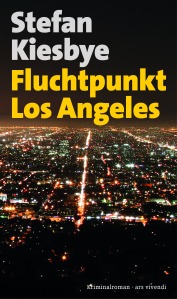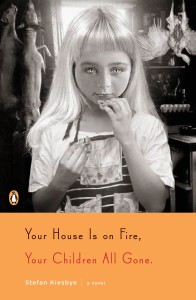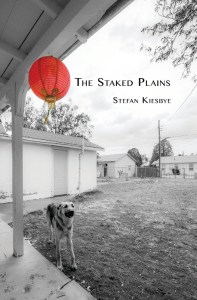No Sound to Break, No Moment Clear

In this moving coming-of-age novel set in the 1980’s, award-winning author Stefan Kiesbye tells the story of a fourteen-year-old boy and his older sister, who grow up in Michigan’s storied Upper Peninsula, in a town that has been left off the map. Once no more than a small outcropping of stone in the middle of Lake Superior, it now lives its second incarnation away from curious eyes, a lost island, a haunted place where fairy tales and creatures of legends can still exist.
In an atmosphere of neighborly distrust, jealousy, and neglect, the boy and his older sister, Katia, chart their own course without guidance, oversight, or protection. The progressive dissolution of their family makes them discover the ugly secrets at the foundation of their own lives in this forgotten place, where you don’t have to sleep to have nightmares.
No Sound to Break, No Moment Clear is a novel about what is lost, what is found, and the challenges that, for better or worse, make us who we are.
But I Don’t Know You
 After twenty-five years in the United States, Cal, an immigrant, loses his home and all personal documents and keepsakes from his childhood to a wildfire. Shortly thereafter, his marriage breaks apart and leaves him without witness to the years spent in the New World. The novel follows Cal on his travels across the country as he tries to reconnect with lost loves, discarded friends, and estranged mentors. It’s a meditation on belonging, identity, memory, and on the stories we tell ourselves and others about who we were and who we have become.
After twenty-five years in the United States, Cal, an immigrant, loses his home and all personal documents and keepsakes from his childhood to a wildfire. Shortly thereafter, his marriage breaks apart and leaves him without witness to the years spent in the New World. The novel follows Cal on his travels across the country as he tries to reconnect with lost loves, discarded friends, and estranged mentors. It’s a meditation on belonging, identity, memory, and on the stories we tell ourselves and others about who we were and who we have become.
Berlingeles
“BERLINGELES reads like an episode of Black Mirror, as conceived by Kafka. Echoes of the past collide with a nightmarish future, set forth in elegant, compulsive prose.”
—Meg Howrey, author of The Wanderers

Knives, Forks, Scissors, Flames
“Some towns change with the times while others seem to fall through the cracks, entering an oddly timeless domain. The latter is the case with Strathleven, in which the rituals and darkness of the past seem always to be glimmering just below the surface of a seemingly normal shell. Wonderfully controlled and with a very deft, beautifully done tone, Knives, Forks, Scissors, Flames is the sort of thing that might happen if The Wicker Man had been cross-pollinated with one of Friedrich Dürrenmatt’s detective novels.”—Brian Evenson, author of A Collapse of Horses
“No contemporary writer’s work scares me more than Kiesbye’s. Knives, Forks, Scissors, Flames is gothic and whatever the opposite of pastoral is rendered in his signature spare, whittled-to-the-bone style.”—Jeff Parker, author of Where Bears Roam the Streets
“Kiesbye is the inventor of the modern German gothic novel.”—Elmar Krekeler, Die Welt
“In Strathleven, a village near Lübeck, mysterious events occur. The newly arrived Benno and his family are faced with the corpse of an unknown woman, superstition, vicious sermons, and isolation. A modern gothic novel: quirky, very readable, and interesting from the first page to the last.”—Peter Peterknecht, Deutschlandradio Kultur
“Ancient pagan Germanic myths and customs pervade the history of Strathleven and its inhabitants. Nothing seems to follow the simple course of events, but old and savage rules; the only apparent escape is to commit new acts of violence.”—Magdalene Geisler, der Freitag
Moving from Berlin to Strathleven, a picture-perfect village on the Baltic Coast, was supposed to be a new beginning for Benno, his wife Carolin, and their six-year-old son, Tim, who is suffering from a mysterious illness. However, shortly after arriving in the country, Benno finds the corpse of a young woman in the woods, and when no one in the village admits to having known her, Benno initiates his own investigation. He digs deep into Strathleven’s superstitions and ritualistic past to recover the history of the murdered woman, yet will he be able to save his marriage and the lives of his wife and son?
The Staked Plains
Saddle Road Press will publish the novella “The Staked Plains.” Advance review copies will be available in October, with a December publication date.
Lee K. Abbott says, “. . . it will scare the stuffings out of you, for its world is in steep moral decline. Think McCarthy meets O’Connor meets Tarantino.”
Fluchtpunkt Los Angeles (Vanishing Point)
Los Angeles, Kalifornien, die nahe Zukunft: Gray Harden, Kunstkritiker, wird angeheuert, um einen großen Deal abzuschließen. Aber der Aktmaler Anton Wright und dessen Bilder verschwinden auf mysteriöse Weise. Nicht nur Harden macht sich auf die Suche nach Wright auch chinesische Shipping-Magnaten, das FBI, ein krimineller Kunsthändler und eine geheimnisvolle Frau sind den Bildern auf der Spur. Und Harden begreift langsam, dass es nicht um Anton Wrights Bilder geht, sondern um eine Verschwörung, die den Gouverneur bedrohen könnte … Ein faszinierender Noir-Krimi um Kunst, Paranoia und Identität.
“Fluchtpunkt Los Angeles” ist ein reichhaltiger, intelligenter, “kleiner” Roman. Auf gerade mal 104 luftig bedruckten Seiten belegt Stefan Kiesbye, der von der Ostsee stammt und heute in Portales/USA kreatives Schreiben unterrichtet, dass ein zeitgenössischer Krimi keineswegs “dick” sein muss, um komplett zu sein.” — Ulrich Noller, Funkhaus Europa
Your House Is on Fire, Your Children All Gone
 “A sublimely creepy novel set in a village in Germany. It reads like the Brothers Grimm with historical resonance and a higher body count.” –Dan Kois, Slate Book Review
“A sublimely creepy novel set in a village in Germany. It reads like the Brothers Grimm with historical resonance and a higher body count.” –Dan Kois, Slate Book Review
“A very elegant nightmare, so appalling and so beautiful.” —Audrey Niffenegger, author of The Time Traveler’s Wife and Her Fearful Symmetry
“Creepy in a way that actually made me quite nervous.” —Ben Loory, author of Stories for Nighttime and Some for the Day
“A brilliant amalgam of Faulkner, the Brothers Grimm, and Gunter Grass as if condensed for intensity.” —Josip Novakovich, author of Fiction Writing Workshop and Writing Fiction Step By Step
And here’s the book trailer! Big thank you to Adam Cushman from Film 14!
All available trailers can be watched at www.youtube.com/stefankiesbye
Next Door Lived a Girl (now available as a Kindle e-book)
Set in Wedersen, a working-class town in post-World War II Germany, Next Door Lived a Girl explores the dark transformation of young boys into young men. The town’s veneer of peaceful industry barely conceals the ugly secrets that lie beneath. Moritz and his friends make a dangerous discovery that pulls them into a war with a rival gang, into the ruthless and cunning world of blackmail and consequence, and, ultimately, into a cascading series of events that will change the nature of their friendship, and their lives, forever.
“This is Stefan Kiesbye’s brilliant debut, a book so quiet and yet so maddeningly powerful, you just have to wonder about him a little bit…
In clear and lucid prose, Next Door Lived A Girl reads as the truest of true-crime novels. Its protagonist is the remembering everyboy who suffers profoundly and in turn commits the gravest of acts. His is a telling voice, agile, insightful and darkly humorous. He does not ask for understanding because he knows you could not possibly understand what happens and he does not ask for forgiveness because he knows you could never forgive such terrible actions.”— Robert Olmstead



You must be logged in to post a comment.